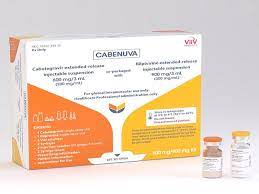Pfizer, Inc. (NYSE: PFE), a stalwart in the healthcare sector, continues to command attention with its diverse portfolio of biopharmaceutical products and a market cap of $129.99 billion. As one of the leading figures in the general drug manufacturing industry, Pfizer’s current stock price stands at $22.92, reflecting a modest price change of 0.14 USD or 0.01% recently. This price is nestled within a 52-week range of $21.59 to $31.39, suggesting both potential stability and volatility, which could intrigue both conservative and speculative investors.
One of the most compelling aspects of Pfizer’s investment proposition is its dividend yield, which stands at an impressive 7.50%. However, it’s important to note that the payout ratio exceeds 100%, at 119.15%, indicating that the current dividend payments surpass the company’s earnings. This raises questions regarding the sustainability of such payouts unless there is a significant improvement in earnings or cash flow. Nevertheless, the robust free cash flow of approximately $12.78 billion provides some cushion, reassuring investors of Pfizer’s capacity to maintain its dividend policy in the near term.
Pfizer’s valuation metrics reveal a mixed picture. While the forward P/E ratio is a reasonable 7.56, suggesting undervaluation compared to the broader market, the absence of trailing P/E, PEG, Price/Book, and Price/Sales ratios complicates a comprehensive valuation assessment. This situation might reflect the company’s transitional phase, potentially influenced by fluctuations in earnings post-COVID-19 vaccine sales, which had previously been a significant revenue driver.
Pfizer’s revenue growth is pegged at a notable 21.90%, which underscores its ability to expand its top line effectively. The company also reports a positive earnings per share (EPS) of 1.41 and a return on equity (ROE) of 9.06%, indicating efficiency in generating returns from shareholders’ equity. These figures highlight Pfizer’s operational strengths despite the absence of a reported net income figure.
Analyst ratings paint a cautiously optimistic picture; out of 23 analysts, 8 have given a “buy” rating, 14 a “hold,” and 1 a “sell.” The average target price is set at $29.50, implying a potential upside of 28.69%, a significant opportunity for investors considering the stock’s current price level. The target price range fluctuates between $22.00 and $42.00, reflecting diverse opinions on the stock’s future trajectory.
Technically, Pfizer’s stock shows signs of being overbought, with an RSI (14) of 79.88. This could indicate a potential price correction in the short term. The 50-day moving average of $24.79 and the 200-day moving average of $27.07 suggest the stock has been trading below these key levels, which may signal bearish sentiment. The negative MACD and signal line values further reinforce this cautious outlook.
Pfizer’s strategic collaborations, including those with Bristol-Myers Squibb, Astellas Pharma, Merck KGaA, and BioNTech, underscore its commitment to innovation and growth in various therapeutic areas. With a rich history dating back to 1849 and a headquarters in New York, Pfizer’s legacy and its proactive approach in addressing unmet medical needs continue to solidify its position as a pivotal player in the biopharmaceutical landscape.
For investors, Pfizer represents a compelling mix of high yield and potential growth, albeit with the need for careful consideration of market dynamics, particularly around its dividend sustainability and valuation metrics. As the healthcare sector evolves, Pfizer’s strategic initiatives and robust cash flow generation offer promising avenues for those looking to capitalize on its future potential.







































